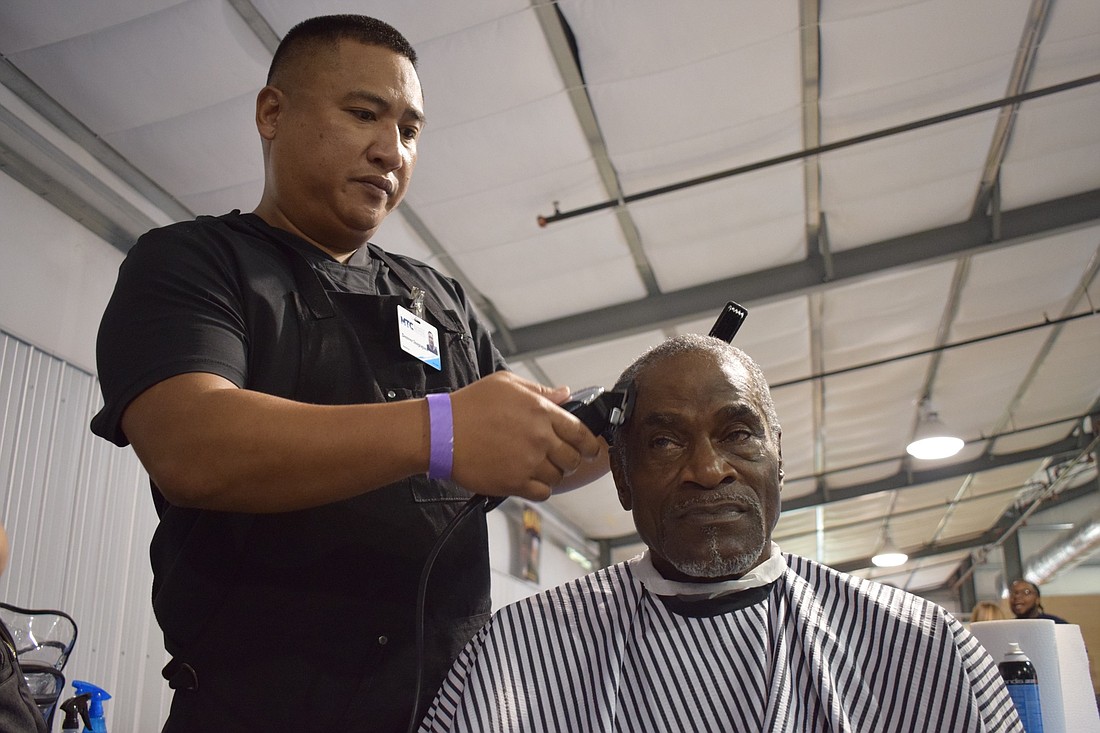- April 24, 2024
-
-
Loading

Loading

With Veterans Day almost upon us, we are likely to hear the many stories of former soldiers suffering from PTSD.
But PTSD is only one factor that prevents veterans from making a smooth transition to civilian life.
While many other factors aren’t near as serious as PTSD, they do cause an uneasiness for veterans and their families.
Take retired Gunnery Sgt. Denver Inopiquez, for instance, who moved to Lakewood Ranch two years ago after 21 years of service in the U.S. Marine Corps.
While in the Marine Corps, Inopiquez was responsible for 80 Marines. His phone was constantly ringing, and he was always on the go.
After retiring in 2017, he didn’t know what to do with himself.
“After getting out, I was like, ‘I’m it?’” he said. “I’m just responsible for myself?”
Even in paradise, that can be a problem.
Inopiquez enlisted at 18 years old out of El Paso, Texas, in November 1996 and served as a military police officer providing security services on military bases and in transporting prisoners.
The big question after retiring was ‘What’s next?’
“You do something for 21 years — that’s your lifestyle,” said his wife, Rachel Inopiquez. “That’s our lives. The kids were like, ‘We’re not going to be around a military base or around other military kids?’ We were out of our comfort zone.”
With Rachel and their two sons, Deven and Jacob, he moved to Lakewood Ranch after hearing from friends how well Florida treated veterans.
When the family was living on bases and constantly moving wherever the Marine Corps stationed them, they leaned on other military families for support.
“The Corps’ heart is the military families because they all support each other,” Rachel Inopiquez said. “Other spouses know the struggles. My kids’ friends know that their dads or moms can be deployed at any minute.”
The U.S. Department of Veterans Affairs offers a “toolkit” for transitioning to civilian life. It is valuable for both veterans, and for civilians who don’t understand the veterans’ plight.
One of the topics is “the veteran and his or her family may have to find new ways to join or create a social community.”
Inopiquez and his family no longer are surrounded by military families who understood what they have been through.
Inopiquez said he has had to remind himself that being late to an event, being able to quit a job or even voicing his opinion doesn’t always come with consequences as it did when he was serving.
The Veterans Affairs’ toolkit notes, “The military provides structure and has a clear chain of command. This does not routinely exist outside the military.”
After retiring, Inopiquez said he needed to decide what career to pursue after only knowing the military for the past 21 years. He knew he didn’t want to enter a career related to law enforcement.
He spent time volunteering as a basketball coach at the Lakewood Ranch YMCA because he missed being in a leadership role. He also tried his hand at being a manager and in sales, but it didn’t take long for him to realize those careers weren’t for him.
While working as a freelance marketing designer, Rachel Inopiquez decided to enroll in Manatee Technical College’s cosmetology program, which she found to be a creative outlet.
After seeing what his wife was doing, Inopiquez thought he could be a barber because he could provide a service while interacting with people, which would help with transitioning to civilian life.
“I never thought I would be a barber,” he said.
Whatever he might become, Inopiquez is proud of his service and he now sometimes mentors his classmates and shares stories of his time in the service.
In Iraq, he was responsible for working at detention facilities’ collection points, training Iraqi police, advising commanders and caring for more than 8,000 prisoners.
Prayers and letters helped him get through his time in Iraq.
Inopiquez said he will never forget the experiences and opportunities his service gave him.
“I wouldn’t change it for the world,” he said. “It’s something that I chose to do. No one forced me to join. I’m proud of doing it. I’d do it again if that’s what we need to defend our freedoms here.”